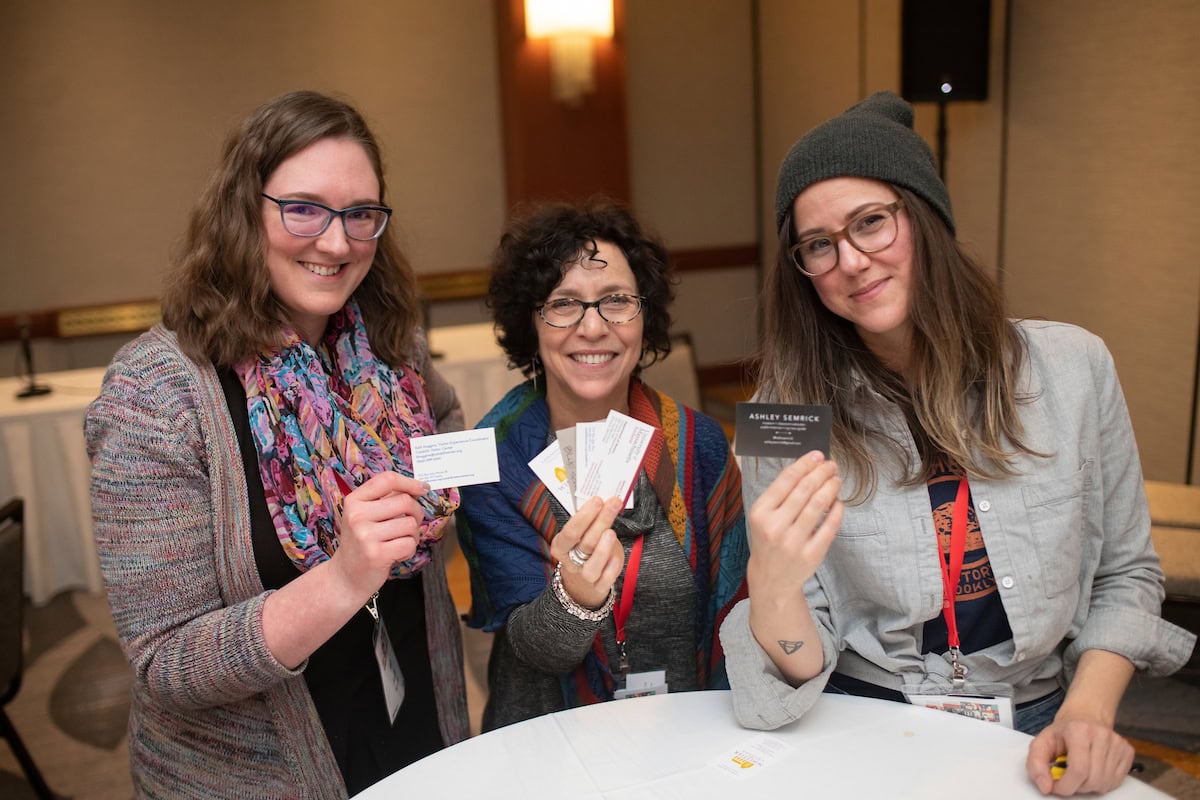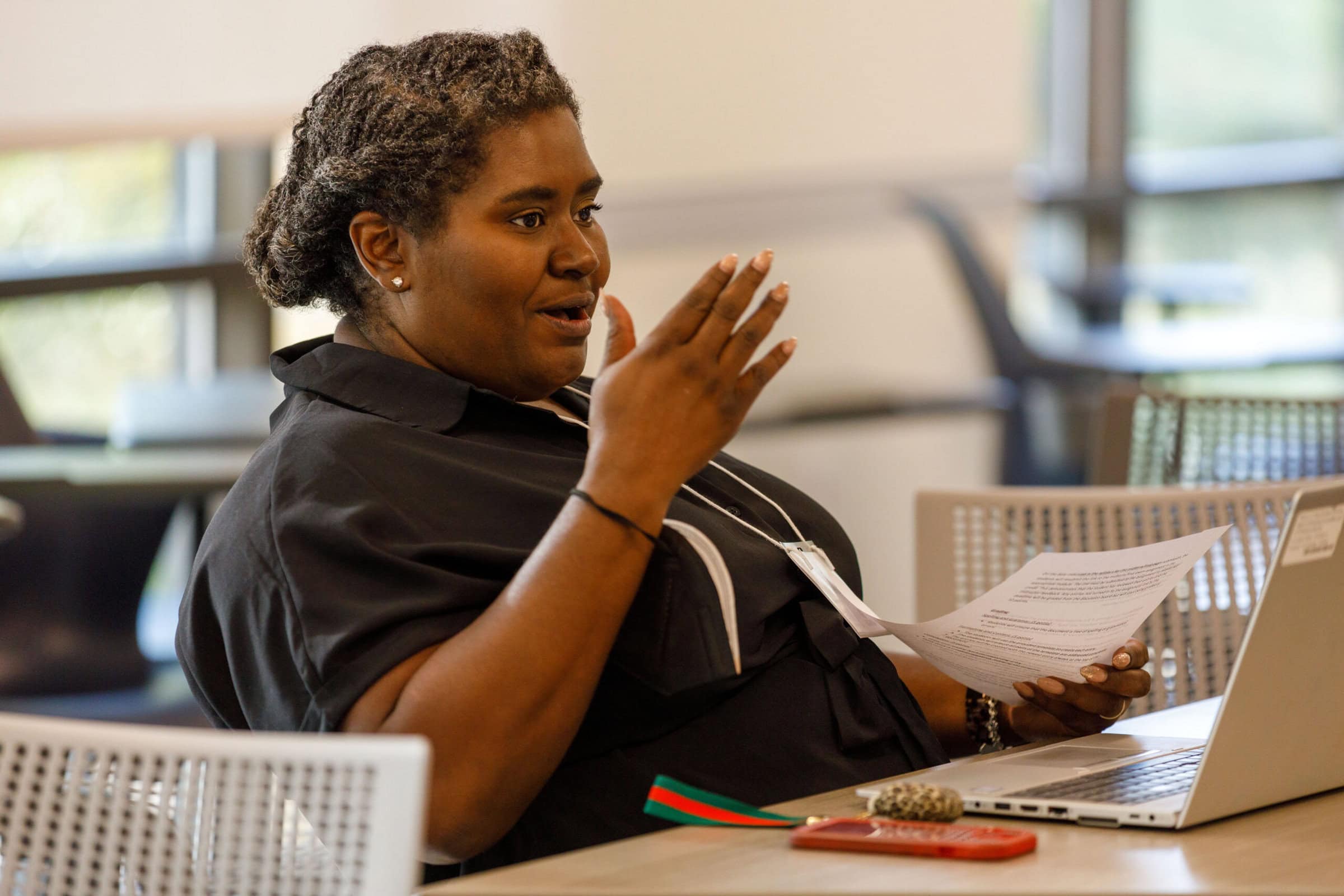Improving Graduate Education
The AHA's Career Diversity for Historians initiative focused on better preparing graduate students and early-career historians for a range of career options, within and beyond the academy. With generous funding from the Mellon Foundation, the AHA and three dozen departments from around the country explored the culture and practice of graduate education and how it can better support the changing needs of PhD students.
Professional & Career Resources

Where Historians Work
Where Historians Work is an interactive, online database that catalogs the career outcomes of historians who earned PhDs at universities in the United States from 2004 to 2017. This tool allows current and potential graduate students to understand the full scope of career options open to history PhDs and to research which departments best fit their values and goals, enables departments to better meet the professional development needs of their doctoral students, and documents the broad impact of doctoral education in history.

Career Contacts
Since its launch in early 2015, the AHA’s Career Contacts program has arranged hundreds of informational interviews between current PhD students (junior contacts) and history PhDs (senior contacts) who have built careers beyond the professoriate. Senior contacts work in a variety of fields, including academic administration, non-profit management, public policy, archives and libraries, K-12 teaching, as well as a range of positions in the federal government and private industry.

History PhDs build careers in a stunning variety of professions. These resources provide personal stories of history PhDs talking about what they do for a living, how they found their jobs, transitioning from graduate school, and what it means to be a historian in their line of work.

Five Skills
The AHA worked with focus groups of historians with PhDs working in careers outside the academy to identify five skills that may not be honed in graduate school but that are necessary for success in a variety of career paths, including as professors. Learn more about the five skills and how historians can develop them.
For Departments

Academic Department Resources
History department chairs are on the front lines of the discipline, defending historians’ work and supporting their professional lives at all stages of their academic careers. The AHA provides resources and hosts a variety of events and opportunities to benefit department chairs and build community, including webinars, sessions at the annual meeting, and an in-person workshop.

Graduate Education Resources
This collection of resources is intended to help faculty and students integrate the ideas generated from the AHA’s Career Diversity for Historians initiative into graduate teaching and advising.
Institutional & Student Memberships
The AHA is committed to helping leaders navigate the challenges facing the discipline of history at colleges and universities, as well as in libraries, archives, and K–12 schools. Institutional members can purchase discounted student memberships for only $30 each.
Conferences & Workshops

Regional Conferences on Introductory History Courses
Our regional conferences endeavor to strengthen the community of practice focused on introductory history courses, both in secondary and higher education.

Annual Department Chairs' Workshop
Since 2018, the AHA has offered an in-person workshop for history department chairs each summer. This interactive two-day workshop provides a productive space for new and experienced chairs to hold thoughtful discussions and share insights about the issues and challenges facing historians and history departments.
Online Events

Online Programs for Department Chairs
Since 2020, AHA has hosted a regular series of online webinars to support the work of history department chairs. The webinars are small group discussions facilitated by experienced department chairs on topics related to the faculty-facing, student-facing, and administrative-facing work of chairs.

Virtual Career Development
In 2020-21, the AHA hosted a Virtual Career Development series, with professional development webinars and workshops emphasizing career exploration and skill development for graduate students and early-career historians.
#AHRSyllabus
The #AHRSyllabus is a collaborative project from the American Historical Review designed to help teachers and students look "under the hood" at how historians in the early 21st century do the work of history. Each contribution to the syllabus features a practical hands-on teaching module that foregrounds innovative uses of historical method in the classroom.
AHA Resource Library
The AHA’s Resource Library includes hundreds of resources developed or vetted by the AHA and our partners. Our resources range from classroom syllabi, to archival documents from the Civil War, to standards and guidelines for the discipline, and much more.